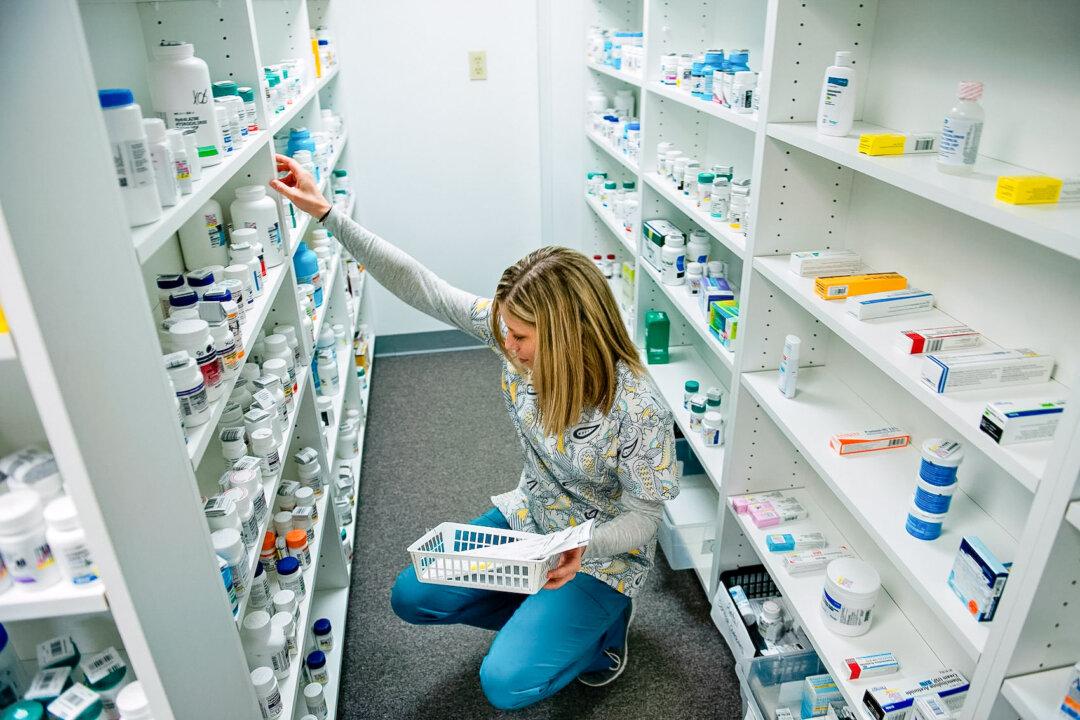The increase in the cost of prescription medications has outpaced inflation over the past 10 years, according to the telemedicine platform GoodRx.
Drug Prices Rose Nearly 40 Percent Over Past Decade, Surpassing Inflation Rate, Tracker Shows
One in four Americans have at least one drug prescribed that their insurance policy does not cover.

A staff member sorts through drugs drugs while filling a prescription at a pharmacy in Blacksville, W.Va., on March 21, 2017. Brendan Smialowski/AFP via Getty Images




